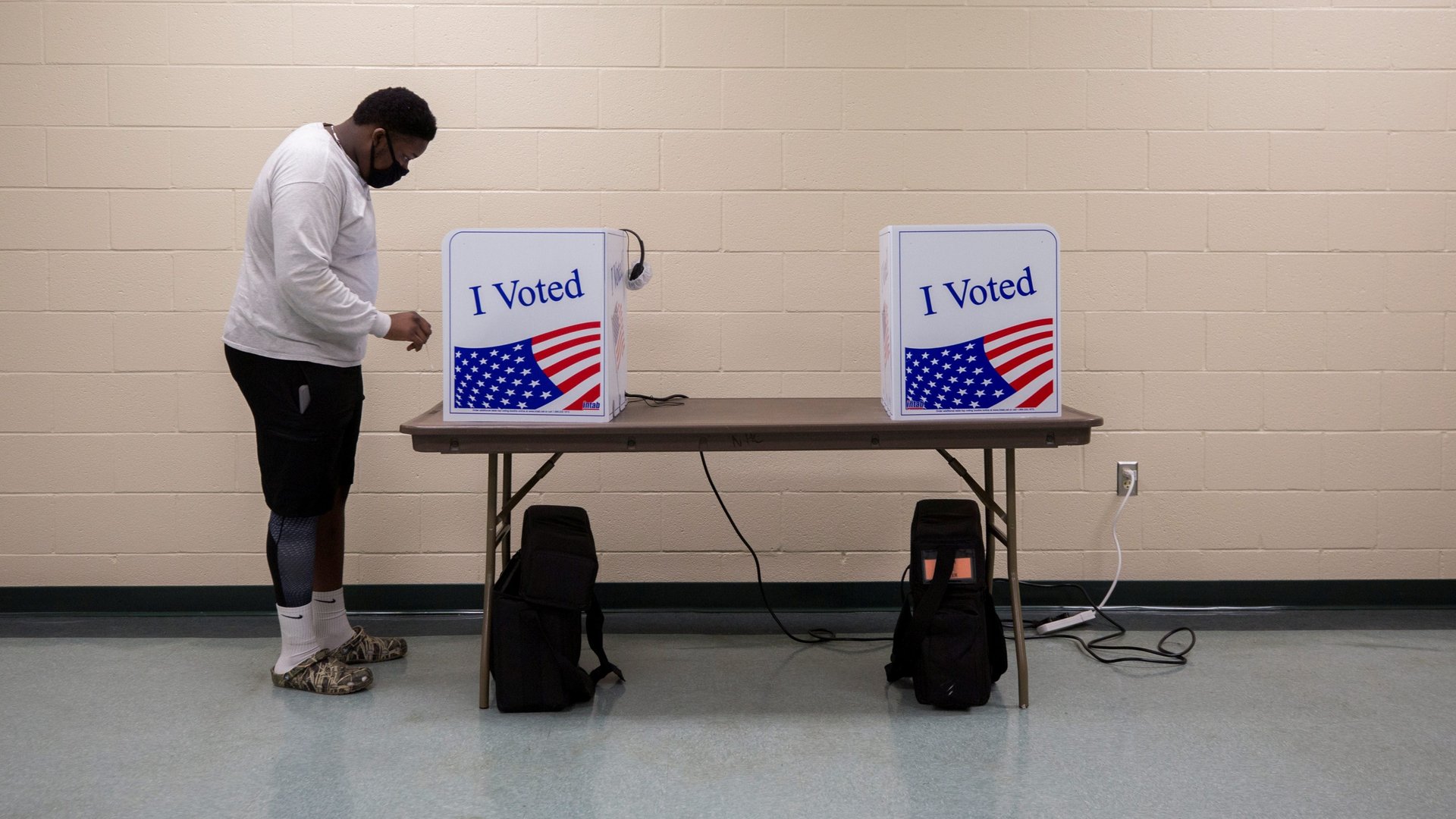What’s the cost per vote to become US president?
In American politics, the candidate who raises the most money nearly always wins. And these votes aren’t cheap. US elections are often some of the most expensive in the world. Less than a month before voting day, both Democratic presidential nominee Joe Biden, and president Donald Trump, have already spent over $350 million each on their presidential campaigns.


In American politics, the candidate who raises the most money nearly always wins. And these votes aren’t cheap. US elections are often some of the most expensive in the world. Less than a month before voting day, both Democratic presidential nominee Joe Biden, and president Donald Trump, have already spent over $350 million each on their presidential campaigns.
One way of understanding the significance of the amount being spent by the candidates is by comparing how much the costs of winning campaigns have translated into votes over the years. How much, ultimately, did winning candidates spend per vote acquired?
To determine cost per winning vote, we divided the amount spent by the candidate with the total number of votes they received. These numbers don’t include any funding contributed by candidates’ respective parties or political action committees (PACs) spending on their behalf. For clarity, our simple analysis is different than the cost-per-vote metric used by some campaign strategists, which is the likelihood of changing an election outcome with a marginal vote.
Money plays a defining role in democracies around the world. But the cost of a vote can vary significantly by nation. Some countries, like France and Canada, limit how much politicians can spend on their campaigns. To put the US numbers in context, Canada’s Liberal party spent $26.1 million on the 2019 election, just under the spending cap of $29 million.
If candidates simply spend more, will they get more votes? Not necessarily. The relationship between fundraising and victory is complicated. For one, not all voters can be swayed by extra spending, as data analysis site FiveThirtyEight explains. Many cast their ballots along party lines, and have done so for decades, or even generations. There’s also some evidence to suggest advertising isn’t particularly effective, which is where a significant portion of campaign funding ends up.
Presidential candidate spending is also only a fraction of the total cost of the US election. One study by an independent group that tracks political spending estimates that a record $10.8 billion will be spent on this year’s vote.
In fact, while there’s a strong relationship between spending and success, it’s a misconception to think that the money entirely causes the success. As Richard Lau, professor of political science at Rutgers told Five Thirty Eight, “I think it’s more that winning attracts money.”